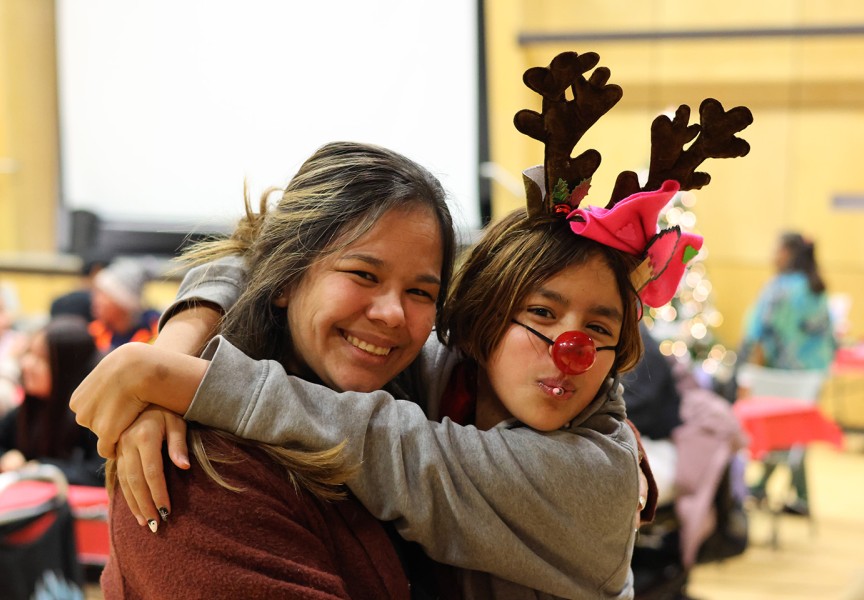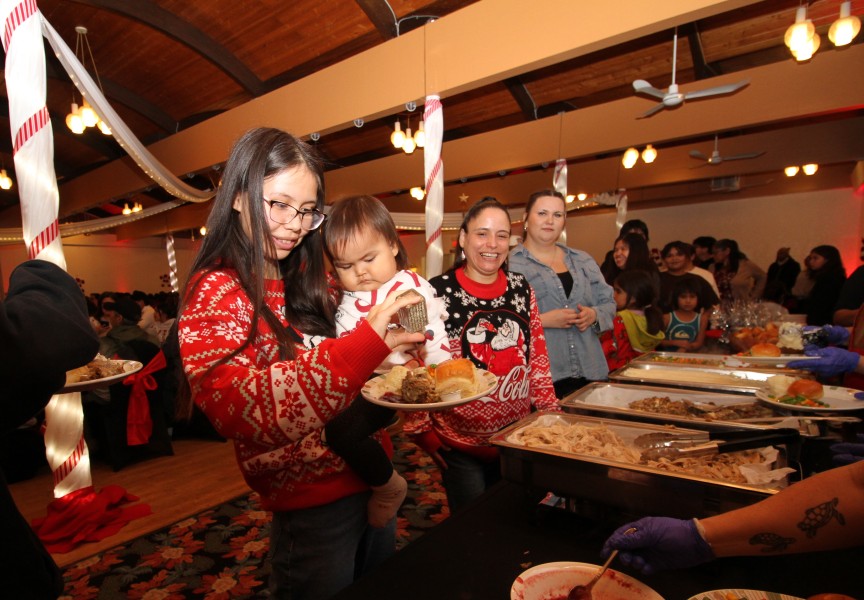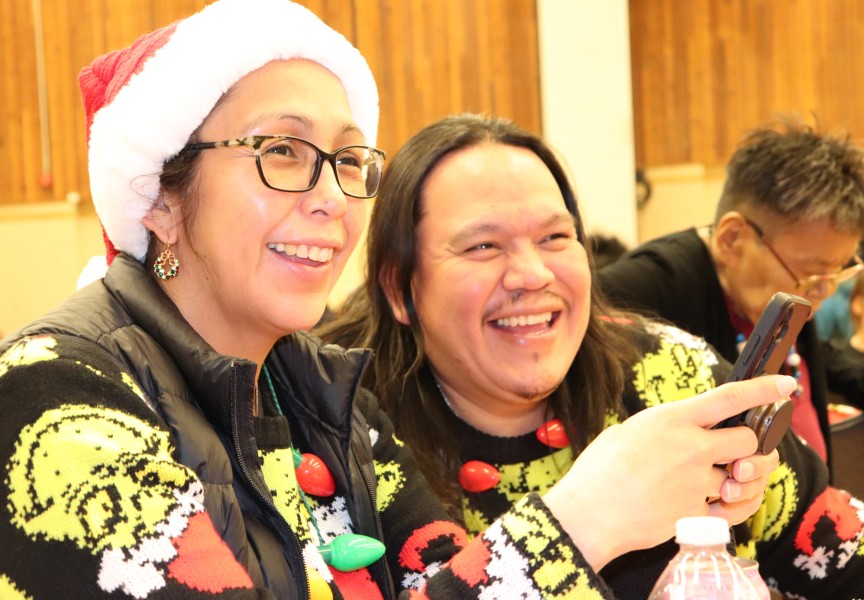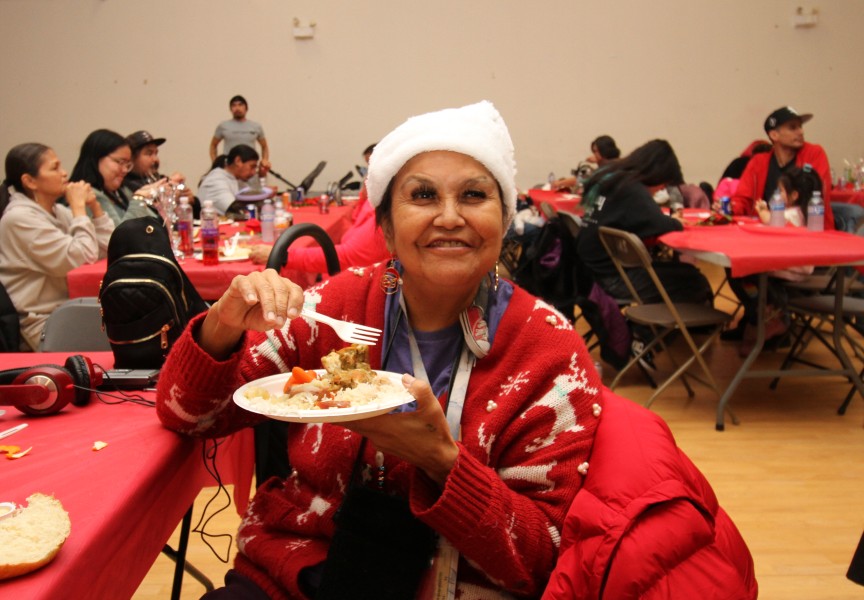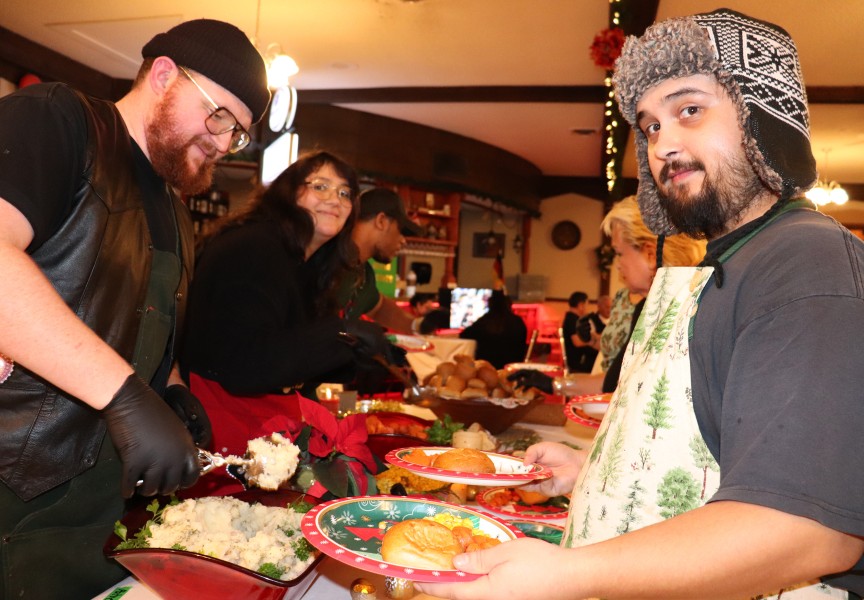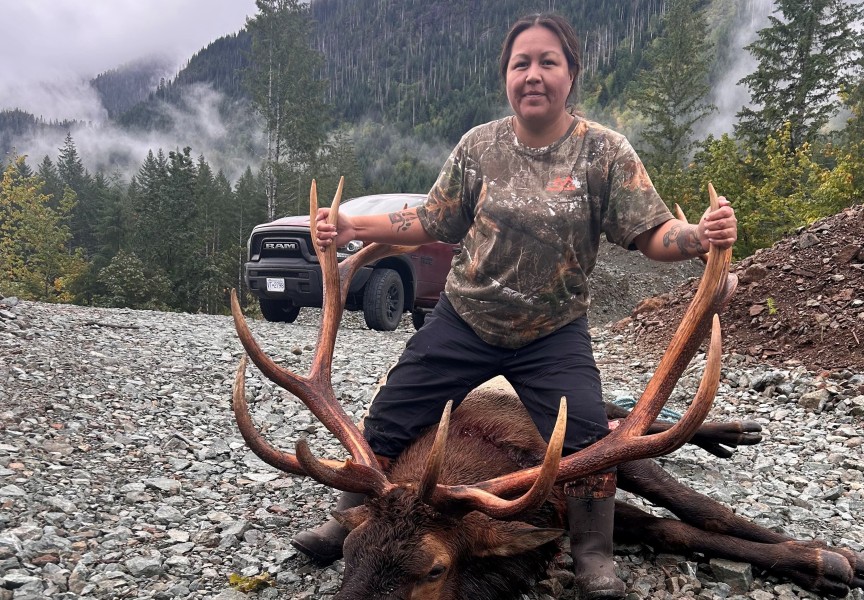Members from nine Nuu-chah-nulth Nations took part in an intensive five-day First Nations Search and Rescue training program through the Canadian Coast Guard.
The course began on March 9 at the Joint Rescue Coordination Centre in Victoria, focusing on communications fundamentals. The “classroom” then moved to the Marine Communications and Traffic Services Centre at Pat Bay.
On March 10, the venue shifted to the CCC Training School in Bamfield, where the real on-the-water training took place. Here, the students learned advanced SAR techniques and procedures with the Bamfield Motor Lifeboat crew, including electronic navigation and charting, cold-water rescue, search patterns and man-overboard drills.
Aaron Watts of the Tseshaht Beachkeepers Program said while there were few surprises for experienced mariners, the program is designed to build a comprehensive skill set that will help First Nations vessel operators communicate and coordinate with SAR professionals.
“For the most part, a lot of this training has been seen by most of our Nuu-chah-nulth representatives here,” Watts said. “This has been about getting a closer look at each of the training modules, to strengthen our own skills.”
The Oct. 25 sinking of the Leviathan II off Vargas Island and the heroic rescue efforts by Nuu-chah-nulth vessel operators highlighted the need to improve SAR capacity and coordination on the West Coast.
But the new First Nations SAR training program was already under development, according to SAR Program Officer Geoffrey Denman, who delivered the training.
“It actually goes back to February last year, where I delivered a community – or POD – exercise to the Gitga’at in Hartley Bay,” Denman said.
Denman’s CCC colleague Tyler Brand said the first formal First Nations SAR session actually did take place just days after the Leviathan II tragedy.
“It was just by coincidence. We were actually on the road to Bamfield when the incident took place,” Brand said.
“Leviathan II certainly supported the argument to commence this training. First Nations are assisting in SAR all the time, and have been, since… forever.”
Ten years ago, Gitga’at members from Hartley Bay were the first to respond to the sinking of the BC Ferries’ Queen of the North, working alongside Coast Guard units and mariners from the community. Brand said there has been any number of similar instances between Queen of the North in 2006 and Leviathan II in late 2015.
Brand noted that there are numerous Royal Canadian Marine SAR (formerly known as Coast Guard Auxiliary) units based in First Nations communities, making the relationship formal.
“But we are also working with the mariners and band members that are on the water. The idea is to give them some resources and some support,” Brand said. “These guys have been on the water forever.
We’re certainly not teaching them any boat-driving. That’s not the mission. We want to help in the SAR missions that are going on, and to bring them to full awareness of the SAR system – the way the Coast Guard operates, and the Department of Defence, and the Rescue Centre – so they can lock in and communicate with us, and have it all work seamlessly.”
Brand said while the students have a chance to work with all of the latest SAR technology at the school, this is very much a real-world training exercise.
“Our focus is to give them the broad generic skills in areas like search, communication, rescue techniques and cold-water survival,” he said. “We’re trying not to focus too much on the high-tech equipment. We’re trying to customize the course to be applicable to their vessels. It is certainly a high-level course, however. We are not watering down anything.”
Watts said the Beachkeepers’ mandate has evolved quickly since the program was launched three years ago. They operate in the Broken Group of Islands in Pacific Rim National Park.
“In the beginning, it was orientated through Parks. We were working with Parks Canada, as well as our own cultural interpretation and history. We did campground clean-up and such.”
But since those early days, more and more of the Beachkeepers’ effort is directed towards campers and recreational users in the unpredictable waters of the Broken Group.
“More and more often with our guests, they may get stranded, or they may be out for a paddle and a storm comes up.”
The Beachkeepers operate an open 19-foot landing craft that can pull right up on shore to load or unload.
“It’s got all the bells and whistles,” Watts said. “We have radio to keep in touch with Coast Guard and Parks Canada and all the power boaters. We are basically the eyes and ears out there in the Broken Group.”
Students who complete the course receive the Coastal Nations SAR certificate, which is recognized by CCC (not, however, by Transport Canada).
“When we go back to our communities and our fellow employees, we are bringing that knowledge and passing it on,” Watts said. “So when these unfortunate incidents that happen, almost on a yearly basis, we will have a stronger partnership within the Coast Guard and Parks Canada and other entities.”
That includes other First Nations, commercial and charter fishermen and tour operators.
“For the most part, we are like one big family out there,” he said. “Our main focus is keeping our guests safe and happy out in the Broken Group, so we work together on that.”
For those who have not visited the Broken Islands in recent years, Watts said the once-sketchy cellphone coverage has improved greatly. That was once a major concern for those who were not equipped with VHF radio.
“For the most part, you can get a signal in most of the campgrounds out there now,” he said.
With his Coastal Nations SAR certification complete, Watts has been designated the Tseshaht/Beachkeepers contact with CCC, as will each of the other members who have completed the course.
Those include Josh Jones (Pacheedaht), Tina Halvorsen (Uchucklesaht), Keith Cox (Ka:'yu:k't'h'/Che:k'tles7et'h'), Arlene Andrews (Mowachaht/Muchalaht), Carlos Mack (Yuułuʔiłʔatḥ), Leon Edgar (Ditidaht), Keith Atleo (Ahousaht) and Terry Dorward (Tla-o-qui-aht).

